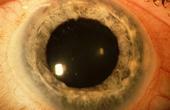Prevention of glaucoma

Because early diagnosis and treatment remain the main way to prevent blindness associated with glaucoma, it is important, given possible complications, to be checked regularly by an ophthalmologist. If you have risk factors for glaucoma, such as age over 60 years, a history of the disease in your family and a past eye injury, your eye specialist will certainly check three main things: intraocular pressure, your optic nerve and the quality of your peripheral vision. If you were diagnosed with glaucoma, your vision can be preserved if you treat the disease properly.
Studies to improve the diagnosis and treatment of glaucoma continue to this day. Thanks to the conducted experiments, both new methods for diagnosing and controlling glaucoma, as well as a variety of new drugs for reducing intraocular pressure, are opened, which, in turn, reduce the pressure exerted on the optic nerve. But even these drugs do not stop the progression of the disease completely. Many people still continue to lose their eyesight because of glaucoma, because, in addition to increased intraocular pressure, there are other causes of vision loss.
It is suggested that the possible cause of glaucoma is untimely death of cells in the optic nerve. Not far off is the emergence of a new type of anti-glaucoma medication that will prevent the early death of nerve cells. This drug, which is already used in Europe and the United States for the treatment of patients with Parkinson's disease, diabetic neurosis and dementia caused by AIDS( for all these diseases nerve cells do not die in time), can help keep the optic nerve cells alive, thus preserving vision. If you are diagnosed with glaucoma, do not despair.
Government organizations such as the National Eye Institute at the National Institute of Health and others are working hard to develop new drugs and therapies that will help defeat glaucoma and therefore protect and improve vision.
Yu. Saveleva "Methods of vision improvement"
